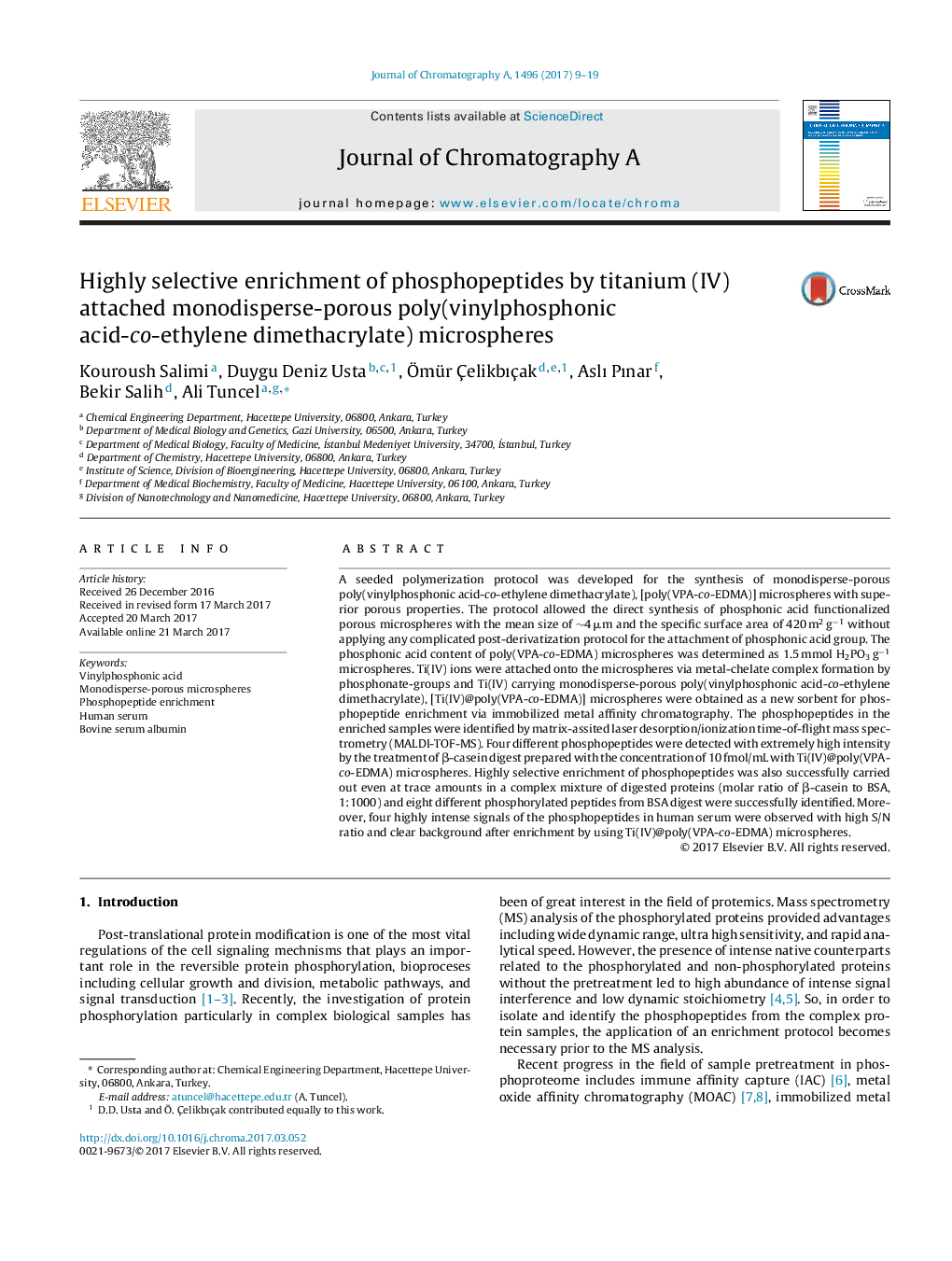| Article ID | Journal | Published Year | Pages | File Type |
|---|---|---|---|---|
| 5135258 | Journal of Chromatography A | 2017 | 11 Pages |
â¢Phosphonate carrying microspheres were first obtained without post-derivatization.â¢High crosslinking agent feed concentration provided high surface area (420 m2 gâ1).â¢High phosphonate concentration on high surface area provided high Ti(IV) content.â¢The detection limit was 10 f mol/mL with complex protein mixtures.â¢Phosphopeptide enrichment from human serum was successfully made.
A seeded polymerization protocol was developed for the synthesis of monodisperse-porous poly(vinylphosphonic acid-co-ethylene dimethacrylate), [poly(VPA-co-EDMA)] microspheres with superior porous properties. The protocol allowed the direct synthesis of phosphonic acid functionalized porous microspheres with the mean size of â¼4 μm and the specific surface area of 420 m2 gâ1 without applying any complicated post-derivatization protocol for the attachment of phosphonic acid group. The phosphonic acid content of poly(VPA-co-EDMA) microspheres was determined as 1.5 mmol H2PO3 gâ1 microspheres. Ti(IV) ions were attached onto the microspheres via metal-chelate complex formation by phosphonate-groups and Ti(IV) carrying monodisperse-porous poly(vinylphosphonic acid-co-ethylene dimethacrylate), [Ti(IV)@poly(VPA-co-EDMA)] microspheres were obtained as a new sorbent for phosphopeptide enrichment via immobilized metal affinity chromatography. The phosphopeptides in the enriched samples were identified by matrix-assited laser desorption/ionization time-of-flight mass spectrometry (MALDI-TOF-MS). Four different phosphopeptides were detected with extremely high intensity by the treatment of β-casein digest prepared with the concentration of 10 fmol/mL with Ti(IV)@poly(VPA-co-EDMA) microspheres. Highly selective enrichment of phosphopeptides was also successfully carried out even at trace amounts in a complex mixture of digested proteins (molar ratio of β-casein to BSA, 1:1000) and eight different phosphorylated peptides from BSA digest were successfully identified. Moreover, four highly intense signals of the phosphopeptides in human serum were observed with high S/N ratio and clear background after enrichment by using Ti(IV)@poly(VPA-co-EDMA) microspheres.
